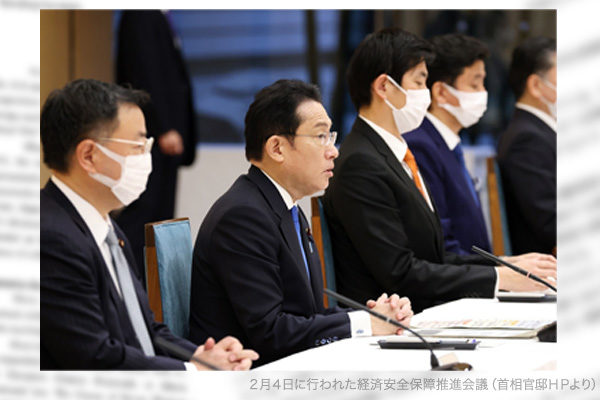Now that Japan has enacted the Economic Security Promotion Act, it is natural for the nation to implement it steadily. But we should not be complacent with the act. Next, Japan should develop economic security legislation for an emergency situation. The Economic Security Promotion Act is a sort of peacetime legislation.
Recommending Japanese-version defense production act
For instance, the Economic Security Promotion Act stipulates measures to secure stable supply of critical materials such as semiconductors. The measures support private companies’ efforts to enhance domestic production of these materials. It is assumed that private companies will accept such roles. The act may be sufficient for peacetime.
In an emergency situation, however, the government will be required to invoke power to order private companies to produce specific materials. While Japan has been required to increase mask and ventilator production during the pandemic, the government has had no choice but to ask private companies to do so in the absence of any law authorizing the government to issue a compulsory order. In contrast, the United States resorted to the Defense Production Act that authorizes the president to order private companies to produce specific products. The president ordered automakers to produce ventilators under the act enacted as an emergency legislation during the Korean War.
The Japanese government is reportedly considering amending the Infectious Diseases Act to empower the government to instruct private companies to produce drugs and other medical supplies during the spread of infectious diseases. The problem is whether such an instruction could be a compulsory order.
Furthermore, the government should be authorized to order private companies to produce other critical materials as well. Sufficient incentives for private companies should also be provided. Japan should enact a Japanese version of the U.S. Defense Production Act.
Measures to counter economic coercion
Japan should also have measures to counter economic coercion. China has repeatedly weaponized economy for unilateral coercion. In 2010, China suspended rare earth exports to Japan, plunging Japan’s industry into a serious situation. Japan is only to be beaten in the absence of countermeasures against such coercion.
As a matter of course, the United States, China and the European Union have countermeasures. At a time when economic coercion is widespread, it is natural for sovereign states to be prepared. While countries should be cautious of invoking countermeasures, they should be readied for the invocation to deter foreign economic coercion.
Japan’s Foreign Exchange and Foreign Trade Act is not designed to invoke such countermeasures. The National Security Secretariat should take initiative to devise new legislation in cooperation with the Foreign Ministry, the Economy, Trade and Industry Ministry, the Finance Ministry and other relevant government agencies.
The enactment of the Japanese-version defense production act and the possession of countermeasures against foreign economic coercion are required to prepare for economic security emergency. The preparation for a Taiwan crisis is now a pressing issue for Japan. While the enhancement of defense capabilities is urgently needed, Japan should not forget to prepare for an economic emergency situation.
Masahiko Hosokawa is a professor at Meisei University and a former director-general of the Trade Control Department at Japan’s Ministry of Economy, Trade and Industry. He is also a Planning Committee member at the Japan Institute for National Fundamentals.


